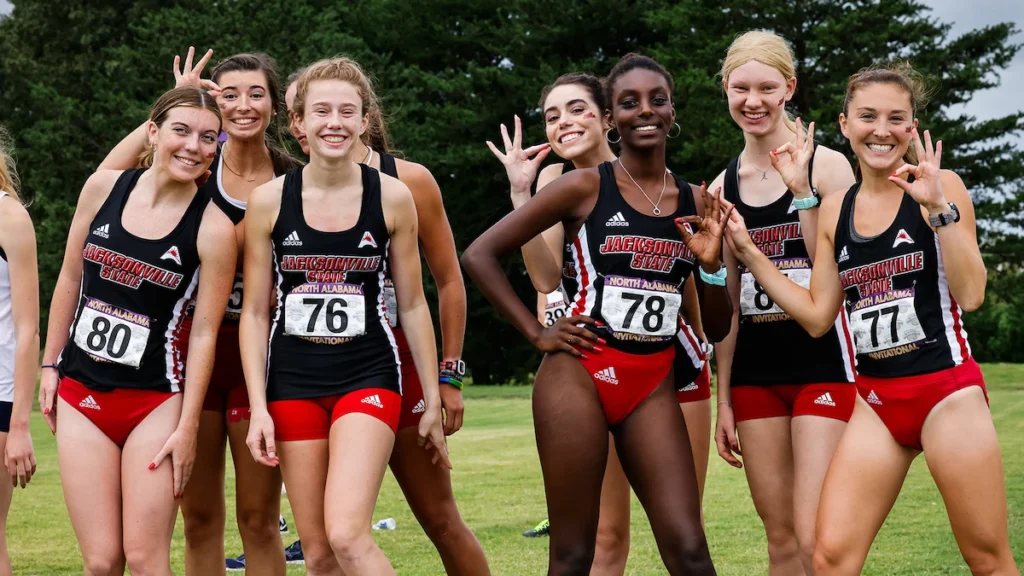
What Is a Freshman, Sophomore, Junior, or Senior in College?
Understanding the 4 college years in the United States
In college, you’ll often hear the terms freshman, sophomore, junior, and senior to describe the different stages of a student’s journey. But have you ever wondered what these words mean or where they actually come from?
In this article, we’ll explain what each stage looks like for student-athletes and explore the surprising origins behind these common terms.
What Is a Freshman?
A freshman is a first-year student in college. This is the starting point, when everything feels new and exciting. Freshmen are normally 18 years old.
The word freshman has its roots in 17th-century England, where students just beginning their studies at universities like Oxford and Cambridge were described as “fresh men,” meaning they were new or inexperienced. Over time, the two words merged into the term freshman, which carried over to American colleges. Eventually, it became the standard way to refer to first-year students.
Main characteristics of freshman year for student-athletes:
- Academics: Big adjustment to the U.S. education system, different teaching styles, and learning how to manage time.
- Sports: Adapting to a new level of intensity, speed, and fitness. May struggle with playing time at first. Learning team culture and coach expectations.
- Social Life: Exciting but also a cultural shock. Meeting people from all over the world, making new friends, and participating in many campus activities. It’s common to sometimes miss home.
- Career: Career planning is not a priority yet.
What Is a Sophomore?
A sophomore is a second-year student in college. Sophomores are usually 19 years old. By this time, you already know how things work, and you begin to feel more confident academically and athletically.
The word sophomore comes from two Greek roots: sophos, meaning “wise,” and moros, meaning “foolish.” It’s a playful mix that shows students at this stage know more than before but still have much to learn.
Main characteristics of sophomore year for student-athletes:
- Academics: More confidence and familiarity with the system. Students start to choose courses more aligned with their major. Better balance between studies and athletics.
- Sports: Improved performance as they’re physically and mentally adjusted to U.S. college athletics. Possibly more playing time, stronger role on the team.
- Social Life: Friendships are stronger and more stable. The initial cultural shock is mostly gone, and students begin to feel more at home.
- Career: Many students take on-campus jobs, which may not always be related to their future careers but provide a way to earn money and work experience.

What Is a Junior?
A junior is a third-year student in college. This is often the busiest year, with harder classes and more responsibilities in sports, academics, and activities. Juniors are usually around 20 years old.
The term junior comes from the Latin, meaning “younger.” In university life, the term was applied to students who were no longer beginners but not yet the most experienced. At first, they were known as “Junior Soph,” while the most advanced students were called “Senior Sophister.” Over time, the shorter title junior became the standard term for third-year students.
Main characteristics of junior year for student-athletes:
- Academics: Often considered the most academically challenging year, as major-specific courses are more demanding.
- Sports: Usually peak performance years. Athletes may become starters and important contributors.
- Social Life: Social circles tend to be established. Students feel settled and balanced.
- Career: Career focus becomes more important. Students attend career fairs, prepare resumes, and may complete internships.
What Is a Senior?
A senior is a fourth-year student in college. This is the final chapter before graduation, when students start planning for their future. Seniors are normally 21 or 22 years old.
In the university setting, the word senior was linked with the term “Senior Sophister,” seen as the most knowledgeable and experienced students. Eventually, the name was shortened to senior.
Main characteristics of senior year for student-athletes:
- Academics: Wrapping up degree requirements, sometimes with capstone projects or senior theses.
- Sports: Final season as a college athlete. Many take on leadership roles and mentor younger teammates.
- Social Life: Strong sense of belonging but also the challenge of preparing for major life transitions.
- Career: Top priority. Applying for jobs, OPT, grad school, or professional athletic opportunities. Networking, interviews, and making big decisions about the future.

What Is a Super Senior?
A super senior in college athletics is an athlete who has received an extra year of eligibility and has chosen to return for their fifth (or even sixth) year of college.
There are several reasons why a student-athlete might become a super senior. One of the biggest factors in recent years was the COVID-19 pandemic, when the NCAA granted athletes an extra year of eligibility since many seasons were shortened or canceled.
Another common reason is taking a redshirt year, where an athlete sits out a season—often due to injury, transfer rules, or coach’s decision—while preserving their eligibility. Some athletes also choose to stay for academic purposes, such as completing a double major, graduate program, or simply needing more time to finish their degree.
Want to Experience College Life in the U.S. as a Student-Athlete?
From freshman year to your final season, every stage of college life comes with unique challenges and opportunities for student-athletes.
At Keystone Sports, we know each step of this journey. That’s why we’ve helped over 15,000 student-athletes from around the world secure sports scholarships in the U.S. As Europe’s leading sports placement agency, we’ve built one of the largest networks of colleges and coaches to ensure we match you with the university that’s the perfect fit for you.
If you’re ready to take the next step toward your career, complete our free evaluation today and our experts will get in touch with you shortly.
Share this article:

About the author
Lorena Montañés
Lorena Montañés, SEO Specialist at Keystone Sports, pursued her career in the U.S., playing DI soccer at California State University, Fresno. There, she earned degrees in Mass Communication & Journalism and Psychology. She later completed an MBA in Business Analytics while coaching at a Division II university. Now, she aims to empower other student-athletes to achieve their dreams and have a life-changing experience.
More related articles

Advantages of Choosing a Junior College for International Athletes
Junior colleges provide an excellent alternative to the conventional university, especially for international students. What are their benefits? Discover the unique opportunities of the JUCO system.

How to Choose the Right College and Program
Choosing the right college and sports program can feel overwhelming. In this article, Promo Specialist Jeppe Marquardsen from our Keystone Sports Nordics team walk you through the various factors to consider when selecting the perfect fit for you.

How to Get a Fully Funded Sports Scholarship in the US
A fully funded sport scholarship is your opportunity to play the sport you love and get a university degree without worrying about financial aid. Here is everything you need to know about sports scholarships and how to get one!

